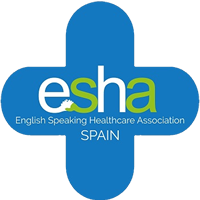
Vegans and vegetarians more prone to risk of stroke
A slightly misleading title, but in a recent article published in the British medical Journal suggests that vegans and vegetarians may be at higher risk of stroke compared to their meat-eating counterparts.
A long-term study followed the eating habits of 48,188 participants, who had no history of heart disease, stroke or angina, during 18 years. They were split into three distinct diet groups: meat eaters (participants who consumed meat, regardless of whether they consumed fish, dairy, or eggs; n=24 428), fish eaters (consumed fish but no meat; n=7506), and vegetarians including vegans (n=16 254), based on dietary information collected at baseline, and subsequently around 2010 (n=28 364).
Over 18.1 years of follow-up, 2820 cases of ischaemic heart disease and 1072 cases of total stroke (519 ischaemic stroke and 300 haemorrhagic stroke) were recorded.
The vegans and vegetarians had 10 less cases of heart disease per 1000 participants than the meat, but surprisingly they had 3 more cases of strokes per 1000 participants compared to the meat-eating participants.
The researchers suggest this could be due to a lack of vitamin B12 which is only found in meat.
Does this mean being a vegan or vegetarian is bad for you? Well no. This is an observational study and so cause cannot be allocated.
Vegan and vegetarian diet has changed a lot in the last couple of decades and there is a lot more offer of pre-packaged processed food available and this may be one reason.
The NHS EatWell guide recommends mixing it up and not eating the same.

people should try to:
- eat at least 5 portions of a variety of fruit and vegetables every day (see 5 A Day)
- base meals on higher fibre starchy foods like potatoes, bread, rice or pasta
- have some dairy or dairy alternatives (such as soya drinks)
- eat some beans, pulses, fish, eggs, meat and other protein
- choose unsaturated oils and spreads, and eat them in small amounts
- drink plenty of fluids (at least 6 to 8 glasses a day)
If you’re having foods and drinks that are high in fat, salt and sugar, have these less often and in small amounts.
Try to choose a variety of different foods from the 5 main food groups to get a wide range of nutrients.
If you would like to speak to an English-speaking nutritionist, you can find one in the ESHA Spain directory here
Leave a reply





Alcohol Rehab Centers
aaa rehab
Reply